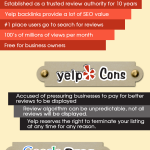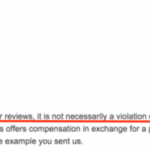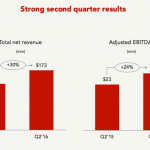Yelp Lawsuit Claims CEO Jeremy Stoppelman Made Millions On Artificially Inflated Stock
A group of Yelp shareholders is filing a class action lawsuit on behalf of investors who purchased shares between February 10, 2017, and May 9, 2017. According to the claim, Yelp misled investors about its financial results when it reported them in February of last year.
In essence, the lawsuit alleges that Yelp misled investors in its Q4 2016 results, and this came to light in its Q1 2017 earnings report. At the second earnings report, the company had to adjust its guidance after missing key metrics, including user retention and revenue. What’s more, the company’s CEO sold stock after allegedly misleading investors about its performance.
According to the complaint: “[Yelp CEO Jeremy Stoppelman] took advantage of the artificially inflated price of Yelp stock resulting from the false statements by selling a significant amount of his personally held shares in the days and weeks following the February 9, 2017 disclosure of Yelp’s financial results.” The suit further alleges that Stoppelman sold $25 million worth of Yelp shares over the course of two months, representing 20% of his holdings.
“Such dramatic selling was inconsistent with Stoppleman’s [sic] prior trading practices.” (The lawsuit seems to have misspelled the CEO’s name dozens of times.)
The lawsuit goes on:
Despite telling investors on February 9, 2017 that no reason existed to be concerned about Yelp’s retention rates, Defendants later admitted that during January and February 2017 the Company was experiencing lower retention rates with a distinct cohort of advertising customers as a result of Yelp’s prior change in pricing.
The plaintiffs are now soliciting shareholders who would be represented under the suit. The press release says that the revised 2017 guidance caused shares to fall from $34.70 to as low as $26.93. The lawsuit seeks a trial by jury and to be awarded compensation “for all damages sustained as a result of Defendants’ wrongdoing, in an amount to be proven at trial.”
Fast Company reached out to Yelp and a spokesperson provided us with this comment: “We deny the allegations and intend to vigorously contest them.”
Fast Company , Read Full Story
(22)













